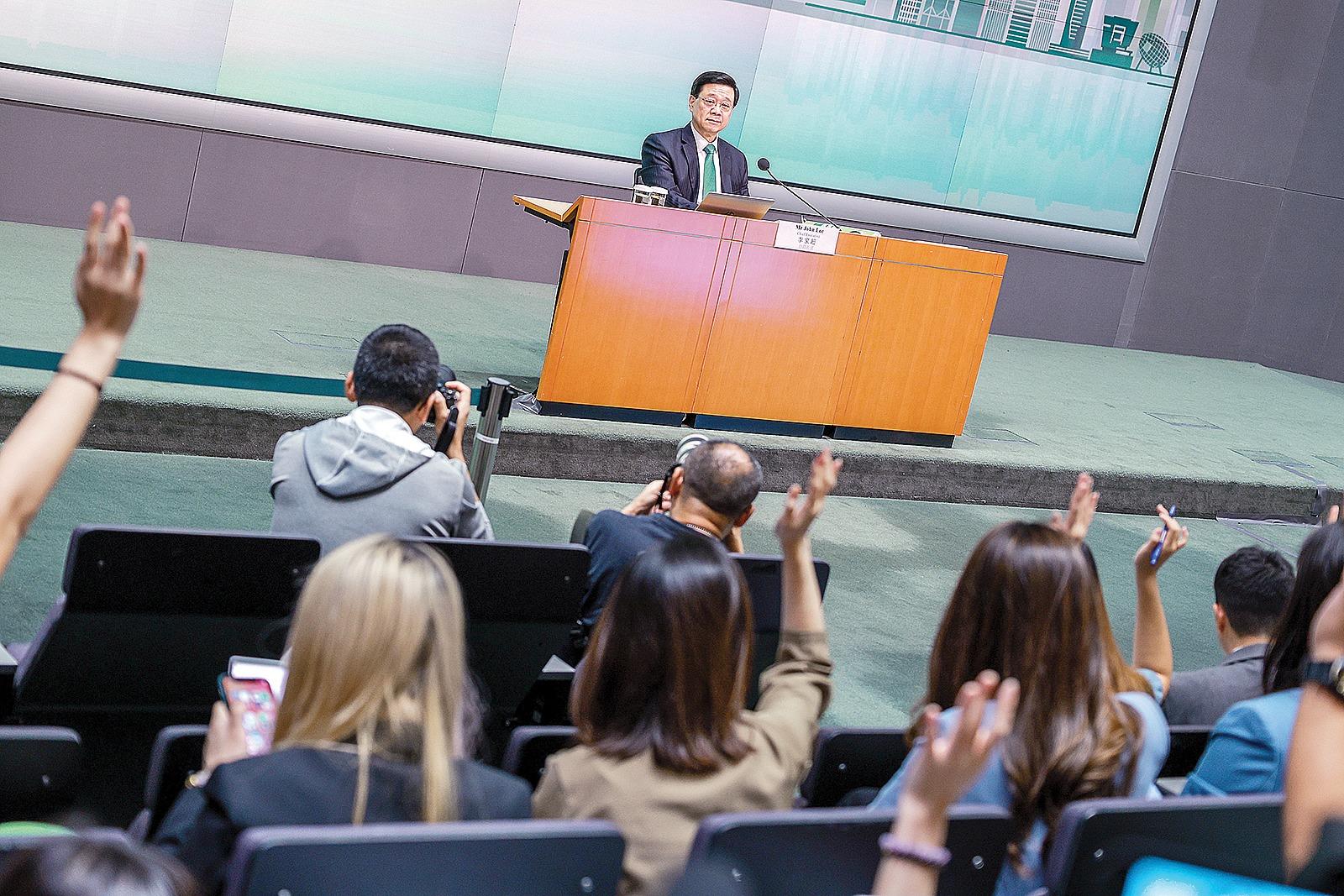Tax on stock trading also cut in a bid to reboot markets in financial center
 Chief Executive John Lee Ka-chiu answers questions from reporters during a news conference on Oct 25, 2023 when he discussed his latest Policy Address. (ANDY CHONG / CHINA DAILY)
Chief Executive John Lee Ka-chiu answers questions from reporters during a news conference on Oct 25, 2023 when he discussed his latest Policy Address. (ANDY CHONG / CHINA DAILY)
Hong Kong has made a much-anticipated move to ease its decade-old property cooling measures and cut the stamp duty on stock trading amid concerns over the health of the Asian financial hub.
Both a 15 percent levy for residents who are not first-time buyers and the stamp duty for nonpermanent residents will be halved to 7.5 percent, Chief Executive John Lee Ka-chiu announced in his annual Policy Address on Wednesday.
Meanwhile, property owners will not need to pay a 10 percent special stamp duty when selling their property two years after purchase.
For buyers who entered Hong Kong under the nonlocal talent programs, payment of the stamp duty will be suspended. They are required to pay only if they fail to obtain permanent residency.
The property cooling measures, also known as “spicy measures”, were first introduced in 2010 to curb the city’s once-notoriously hot housing prices. However, under pressure from rising interest rates and a sluggish economy, the property market has hit a downward spiral in recent years and struggled to find a way out.
According to Centaline Property Agency, Hong Kong’s existing home prices have dropped 18 percent since 2021 and to their lowest level in six years. Newly built homes are also reeling from a supply glut. Some developers have cut new-home prices by up to 20 percent to lure hesitant buyers.
Jason Leung Yeuk-ho, a researcher at local think tank Our Hong Kong Foundation, said the measures in the Policy Address “actively respond to the latest market changes and expectations”, saying it would not only improve market liquidity but also help residents improve their quality of life.
“Furthermore, the measures send a positive message to trawl for talents from outside the city, playing a beneficial role in Hong Kong’s push for talent,” Leung said.
Nevertheless, Joseph Tsang, chairman of real estate brokerage JLL in Hong Kong, said the relaxation of cooling measures is only a “Band-Aid solution” that is unlikely to reverse the downward trend of home prices.
“Home prices would not pick up. The outlook of Hong Kong’s housing market and home prices is not optimistic amid the overall economic downturn, geopolitical uncertainty in the Middle East, high interest rates, and stock market slump,” Tsang said.
“Instead, the government should reduce the target for private housing supply, reintroduce the mechanism of triggering of land for auction to replace the current regular tender, and remove all cooling measures in the housing market, including stress tests,” he added.
Lee said Hong Kong would also cut its stamp duty on stock trading from 0.13 percent to 0.1 percent to bolster its sagging equities market.
Hong Kong’s benchmark Hang Seng Index has retreated more than 15 percent this year, while average daily turnover shrank 16 percent year-on-year to HK$115.5 billion ($14.77 billion) in the first six months.
This reduction followed the Chinese mainland’s decision to halve the levy to 0.05 percent in late August and is part of a package of measures, including a review of stock trading spread and a cut in market data fees, to boost the city’s standing as a financial center.
Lee said the target is to complete legislative procedures by the end of November.
Nicolas Aguzin, CEO of the bourse operator Hong Kong Exchanges and Clearing (HKEX), said he believes the measures will help reduce trading costs, encourage more participation in Hong Kong’s capital markets, and in turn build greater liquidity and market depth.
“HKEX looks forward to working closely with the Hong Kong Special Administrative Region government, regulators and market participants to facilitate the timely implementation of these measures,” he added.
Mofiz Chan, chairman of the Hong Kong Securities and Futures Professionals Association, argued that the reduction is too slight to draw overseas funds into the Hong Kong stock market as the city’s levy on stock transactions “remains significantly higher than in other major international financial centers”.
He suggested that the government further reduce or even abolish the stamp duty on stock trades to boost market liquidity and attract more companies to list in Hong Kong.


